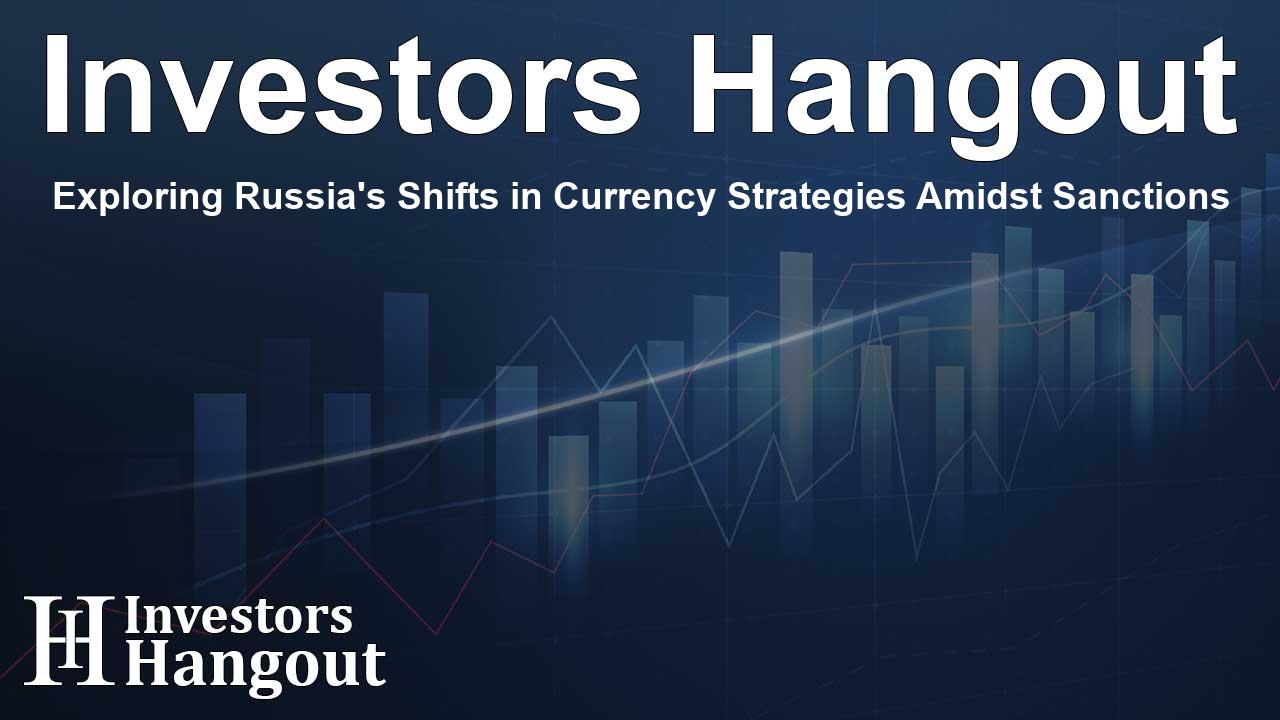Exploring Russia's Shifts in Currency Strategies Amidst Sanctions

Russia's Transition from Western Currencies to the Yuan
In response to international sanctions imposed on Russia due to its actions on the global stage, the country has made a notable shift in its economic approach. Moscow is increasingly utilizing the yuan for international transactions, moving away from reliance on the dollar and euro as it navigates a more restricted financial environment.
Increasing Reliance on China
As trade ties between Russia and China have strengthened, other trade options have nearly closed off. By the middle of the year, the yuan accounted for an astonishing 99.6% of the Russian foreign exchange market. However, this heavy reliance on a single currency is beginning to reveal signs of instability and unpredictability.
Challenges for Russian Banks
Several major Russian banks have disclosed that they are facing liquidity issues concerning yuan. The CEO of Sberbank, one of the largest banks in the country, stated that they are unable to issue loans in yuan due to insufficient reserves. This limitation has troubling implications for domestic businesses and the overall economy.
Impact of Increased Sanctions
The economic difficulties are exacerbated by heightened U.S. sanctions targeting Russia's military sectors, which have instilled fears among Chinese banks regarding transactions with Russia. Consequently, these banks have become reluctant to facilitate yuan transactions, further constraining financial exchanges between the two nations.
Increasing Economic Pressure
The Bank of Russia's efforts to stabilize the situation have thus far produced limited success. While substantial amounts of yuan are being acquired from the central bank through swaps, it is recognized that these measures are only meant for temporary relief. Additionally, significant delays in transactions due to currency shortages have led to growing frustration among Russian exporters.
Military Production Versus Economic Growth
Amid rising inflation and financial obstacles, the Russian economy has managed to find some degree of stability. Government spending, particularly in defense, has played a vital role in sustaining economic activity, while oil exports to countries like China and India contribute additional revenue. However, this military-centric economic strategy may hinder long-term growth and innovation.
The Path Forward: Balancing Military Priorities and Economic Health
Experts have highlighted that prioritizing military production creates an unsustainable equilibrium. With household debts on the rise and a struggling private sector due to military mobilization, the Russian administration faces a critical decision. It must carefully balance the need for military readiness with the necessity of nurturing a healthy and innovative economy.
Conclusion: Navigating a Complex Financial Terrain
As Russia maneuvers through the challenging landscape of currency dependency and international relations, the task ahead is formidable. The reliance on the yuan reveals vulnerabilities within its economic structure and underscores the urgent need for a more diversified strategy moving forward. How Russia responds to these challenges could significantly influence not only its economy but also its standing in the global arena.
Frequently Asked Questions
What is the main reason for Russia's shift to the yuan?
The primary reason for Russia's shift to the yuan is the international sanctions that limited its access to Western currencies, prompting a greater reliance on China for trade.
How dependent is the Russian economy on the yuan now?
As of mid-year, the yuan made up 99.6% of the Russian foreign exchange market, indicating a significant level of economic dependence.
What are the implications of this dependency for Russian banks?
This dependency creates liquidity challenges for Russian banks, especially as they struggle to obtain yuan for lending, which complicates matters for domestic businesses.
How have sanctions impacted Russian-China financial transactions?
Heightened sanctions have led to concerns among Chinese banks, making them hesitant to conduct transactions with Russian entities, which has resulted in delays in trade payments.
What potential challenges does Russia's military spending pose to its economy?
Focusing on military spending may discourage productive investments in non-military sectors, leading to long-term economic stagnation and difficulties in fostering innovation as consumer debt increases.
About The Author
Contact Owen Jenkins privately here. Or send an email with ATTN: Owen Jenkins as the subject to contact@investorshangout.com.
About Investors Hangout
Investors Hangout is a leading online stock forum for financial discussion and learning, offering a wide range of free tools and resources. It draws in traders of all levels, who exchange market knowledge, investigate trading tactics, and keep an eye on industry developments in real time. Featuring financial articles, stock message boards, quotes, charts, company profiles, and live news updates. Through cooperative learning and a wealth of informational resources, it helps users from novices creating their first portfolios to experts honing their techniques. Join Investors Hangout today: https://investorshangout.com/
The content of this article is based on factual, publicly available information and does not represent legal, financial, or investment advice. Investors Hangout does not offer financial advice, and the author is not a licensed financial advisor. Consult a qualified advisor before making any financial or investment decisions based on this article. This article should not be considered advice to purchase, sell, or hold any securities or other investments. If any of the material provided here is inaccurate, please contact us for corrections.
